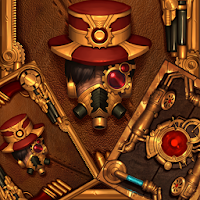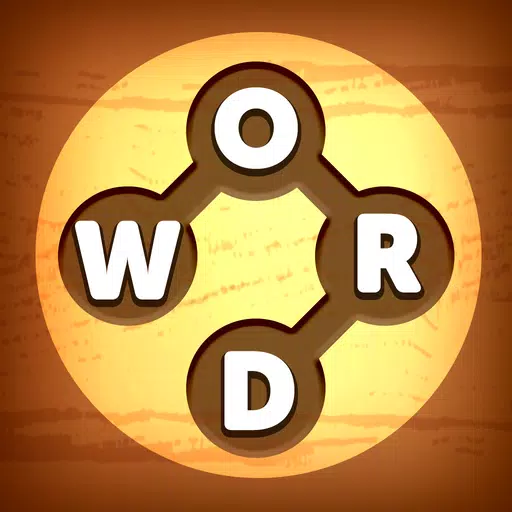Ridley Scott’s Lost Dune Script Found: 'I Don't Think It Would’ve Made Fans Happy'
"It would be very easy to make a bad film of Dune…" –Ridley Scott, South Bend Tribune, 1979
This week marks the 40th anniversary of David Lynch's Dune. Initially a box office disappointment with a $40 million gross upon its release, it has since garnered a dedicated cult following over the past four decades. Released on December 14, 1984, Lynch's film stands in stark contrast to Denis Villeneuve's recent adaptations of Frank Herbert's acclaimed novel. Renowned director David Lynch was announced to helm Dune for producer Dino De Laurentiis in May 1981, following Ridley Scott's departure from the project shortly after the success of Blade Runner and Gladiator.
Previously, little was known about Ridley Scott's version of Dune, which he developed for De Laurentiis over seven to eight months. However, thanks to the diligent work of T.D. Nguyen, a 133-page October 1980 draft of Scott's unproduced Dune film, penned by Rudy Wurlitzer, has surfaced from the Coleman Luck archives at Wheaton College.
When Scott joined the project after the success of Alien in 1979, Frank Herbert had already crafted a detailed two-part screenplay adaptation. Though Scott found a few scenes he favored, he ultimately enlisted Wurlitzer to rewrite the script from scratch in London as preliminary pre-production commenced at Pinewood Studios. This draft, like Herbert's and Villeneuve's later efforts, was intended as the first part of a two-film series.
Rudy Wurlitzer described the process to Prevue Magazine in 1984, stating, "The Dune adaptation was one of the most difficult jobs I’ve ever done. It took more time to break it down into a working outline than to write the final script. I believe we kept to the spirit of the book but, in a sense, we rarefied it. We interjected a somewhat different sensibility."
In a 2021 interview with Total Film, Scott reflected on the script, saying, "We did a script, and the script is pretty fucking good."
Several factors contributed to the collapse of Scott's Dune project, including emotional strain following his brother Frank's death, reluctance to shoot in Mexico as demanded by De Laurentiis, a budget exceeding $50 million, and the more promising prospects of Blade Runner with Filmways. Thom Mount, a Universal Pictures executive, noted in the book A Masterpiece in Disarray – David Lynch's Dune, "Rudy’s version of the script did not receive unanimous, glowing enthusiasm."
Was Wurlitzer's adaptation a cinematic misstep or simply too dark, violent, or politically charged for mainstream success? Readers can explore our in-depth script analysis and form their own opinions.
Rudy Wurlitzer (age 87) and Ridley Scott were both approached for this article but declined to comment.
A Wilder Shade of Paul
The October 1980 draft of Dune opens with a dream sequence depicting apocalyptic armies ravaging the universe, setting the stage for Paul's ominous destiny. Ridley Scott's visual style is evident in the script, with descriptions like "birds and insects become a whirling hysteria of motion."
 Frank Herbert's Dune (First Edition)
Frank Herbert's Dune (First Edition)
Scott emphasized his collaborative approach with the writer, telling Total Film, "We did a very good take on Dune, because early days, I’d work very, very closely with the writer. I was always glomming the look of the film onto what he or she was writing."
The narrative then shifts to Paul Atreides, depicted as a 7-year-old with long blonde hair, waking from a dream to the sound of rain at Castle Caladan. He undergoes a test of will with the Reverend Mother and uses The Voice to retrieve a sword from a guard. Paul's character in this draft exhibits a "savage innocence" and is shown in a flash-forward growing from age 7 to 21, surpassing Duncan Idaho in combat prowess.
Stephen Scarlata, producer of the documentary Jodorowsky's Dune, commented on Wurlitzer's portrayal of Paul, stating, "Rudy Wurlitzer’s version of Paul is far more assertive. He actively takes charge. We even see a flash-forward of his growth spanning from age 7 to 21, where his relentless training leads him to surpass Duncan Idaho. Personally, I prefer Lynch’s depiction of Paul. There’s an added tension in believing Paul might defeat Gurney, only to realize he doesn’t. This vulnerability makes us feel more fear and concern for him, especially when Paul and Jessica are forced to escape."
In this version, the now 21-year-old Paul is described as a master swordsman, "handsome, charismatic, regal." Duncan, taking the place of the absent Gurney, is characterized as "broader with white hair and beard," with a humor reminiscent of Jason Momoa's portrayal.
DUNCAN
It is a teacher's duty to have his
pupil someday surpass him.
(smiling)
But, don't think you can relax. This
is just one level you have reached.
There are other, more perilous,
methods to master. But, not now.
Now we are going to get properly
drunk.
Long Live the Emperor
The script then transitions to a scene outside the castle where Jessica observes a gardener raking white pebbles. The gardener's sudden reverence as it begins to rain signals the Emperor's death, a pivotal moment that catalyzes the story's events.
Contemporary screenwriter Ian Fried, who worked on Legendary's Spectral and a modern version of The Island of Dr. Moreau, praised this scene, telling IGN, "I absolutely love the moment of Jessica looking out across the castle at the gardener raking white pebbles into patterns. Then all of a sudden it starts raining and the gardener falls to his knees, prostrates himself, looks up at the sky and says, 'the Emperor is dead.' I get chills just saying that. On the other hand, that's not at all from the book. There's so much material in Dune that to be adding new stuff is probably not what most people would have wanted or would want now. That was a really, really interesting part of the script, that the catalyst for everything is the Emperor dying."
The narrative then moves to the Emperor's Inner Kingdom, where members of the Twenty-Four Great Houses gather to mourn the Emperor. The dead Emperor speaks through a Medium, bequeathing the planet Arrakis to Duke Leto Atreides in hopes of countering the universe's encroaching darkness.
This darkness manifests in Leto's cousin, Baron Harkonnen, who, through Feyd-Rautha, proposes a division of Arrakis' spice production to avoid conflict. Duke Leto rejects this offer, leading to a confrontation where the Baron utters a line similar to one in Lynch's film: "He who controls the spice controls the universe."
Mark Bennett of DuneInfo speculated on the origin of this line, saying, "Normally I have credited Lynch with this great line. Given that this was a De Laurentiis project script, I wonder if Lynch read it and borrowed that line, or came up with it independently?"
Flight of the Navigator
During the Atreides family's departure from Caladan aboard a Guild Heighliner, the script introduces a Navigator, a spice-mutated creature visualized as "an elongated FIGURE, vaguely humanoid with finned feet and hugely fanned, membranous hands, floating in a transparent outer container, like a loose, flexible skin; a fish in a strange sea with eyes of Total Blue." The Navigator takes a pill, falls into a coma, and navigates the Heighliner's course with musical intonations, reminiscent of Scott's later film Prometheus.
Ian Fried expressed his appreciation for this element, stating, "I absolutely loved that they were able to show the Navigator. Even though I love the Denis Villeneuve movies, I'm really disappointed we didn't get to see his take on that. A missed opportunity."
Upon arriving on Arrakis, the Atreides' fortress is described in a manner reminiscent of Scott's Legend, with medieval aesthetics, swords, and feudal customs. Liet Kynes introduces his daughter Chani to the Duke and Paul, emphasizing the ecological devastation caused by spice harvesting. The script includes a scene where Paul and Duncan follow a Harkonnen agent into a bar fight, meeting the stoic Fremen leader Stilgar.
*DUNCAN picks up the axe.
DUNCAN
(looking at it)
Nasty little instrument.
Not very well balanced, but it will
have to do.With a short snap to his wrist he
throws it at BURLY MAN coming
towards him holding a long iron
bar. The axe strikes him in the
chest, splitting him in two.*
Stephen Scarlata commented on this scene, saying, "That feels like a bar brawl you’d find in a Burt Reynolds or Walter Hill action movie. The fight scene feels out of place because it makes Paul seem too invincible too soon. His journey is about growth - learning to survive, adapt, and lead. If he’s already effortlessly beating enemies, we lose the tension/fear for his safety key to making his transformation meaningful."
Stilgar's introduction leads to a scene where he decapitates a lone Harkonnen agent in a smuggler's market. The script also features Jessica levitating during meditation, and a poignant moment where she and the Duke decide to conceive a child, with Jessica saying, "When you release your seed it will be like sacred oil poured into an altar fire."
Baron Wasteland
Dr. Yueh, after receiving a secret message, shares a moment of regret with Paul before sending him into the city for a night of freedom. Paul follows a homeless boy into a Fremen Spice Den, inhaling blue spice vapor and experiencing visions of his unborn sister Alia, who intones "Maud'Dib." He encounters an Old Crone and hypnotizes a baby sandworm with mudras before placing it in a conch shell.
Yueh poisons Thufir during a chess game and deactivates the house shield, allowing Harkonnen Death Commandoes to infiltrate the castle. Paul returns to find a Hunter-Seeker, described as "a bat-like creature with a cobra's head," attacking him. He manages to decapitate it just as Jessica enters.
 The bat-like Hunter-Seeker in Ridley Scott's version is similar to the "flying creature with a bomb" from Alejandro Jodorowsky’s unmade Dune, seen here in storyboard art.
The bat-like Hunter-Seeker in Ridley Scott's version is similar to the "flying creature with a bomb" from Alejandro Jodorowsky’s unmade Dune, seen here in storyboard art.
Stephen Scarlata found the Hunter-Seeker scene intriguing, stating, "The Hunter-Seeker scene is fascinating to me. Introducing a biological twist to the usual mechanical device mirrors Alejandro Jodorowsky’s unmade Dune from a few years earlier, where the Hunter-Seeker is a flying creature with a bomb strapped to its back… Paul slows his heart rate, disarms the creature, and throws the bomb out the window. Both versions experiment with an animalistic take."
Duke Leto battles the Death Commandoes but is ultimately poisoned by Yueh. Duncan arrives to save Leto but is fatally wounded by Yueh, whom he then kills. Jessica places a poison gas capsule in the dying Duke's mouth before they escape in a 'Thopter, leaving behind a scene of graphic violence.
The Deep Desert Controversy
Paul and Jessica's flight into the deep desert is intense, with Paul's piloting causing G-force effects. After a crash, they endure a sandstorm in a Stilltent before venturing out in Stillsuits. Paul confronts a massive sandworm without fear, a scene reminiscent of Villeneuve's film.
Notably absent from this draft is the incestuous relationship between Paul and Jessica present in earlier versions, which both Herbert and De Laurentiis found objectionable. Wurlitzer admitted to Prevue, "In one draft I introduced some erotic scenes between Paul and his mother, Jessica. I felt there was always a latent, but very strong, Oedipal attraction between them, and I took it one note further. It went right in the middle of the film, as a supreme defiance of certain boundaries, perhaps making Paul even more heroic for having broken a forbidden code."
The script includes a moment where Paul and Jessica slide down a sand dune, losing their supplies, and hide in a cave within a giant worm carcass. They are eventually discovered by Fremen led by Stilgar, and Paul engages in a brutal duel with Jamis, using a crysknife gifted by Shadout Mapes. After defeating Jamis, Paul sheds tears for his fallen foe, a gesture that impresses the Fremen.
During a Spice ceremony, Paul is named Maud'Dib and learns that he has won Chani as a mate, though she initially refuses his offer of Jamis' water. The Fremen then embark on a journey across the salt flats on a Sundancer, aiming to unite the tribes behind the Lisan al-gaib legend.
The script's climax features a Water of Life ceremony, where a Shaman with three breasts and male genitals performs an erotic dance, guiding a sandworm to transform water into the Water of Death. Jessica drinks it, surviving the ordeal and proclaiming herself the new Reverend Mother. Paul, Jessica, and Chani are accepted as the new royal family, and the script ends with Jessica calling a giant sandworm for Paul to ride, a key element Herbert emphasized to The Vancouver Sun in 1980.
Conclusions
 H.R. Giger's exceedingly phallic sandworm design.
H.R. Giger's exceedingly phallic sandworm design.
Frank Herbert's Dune series aimed to critique the dangers of charismatic leaders, a theme central to Denis Villeneuve's adaptations but overlooked by David Lynch. Wurlitzer's script presents Paul as a confident young man accepting his destiny as a universal dictator, with complicit characters like Chani and Kynes supporting his rise to achieve their ecological goals.
This script, conceived at the dawn of modern science fiction films inspired by Star Wars and Alien, may have been too ambitious for its time, tackling mature themes like ecological devastation and exploitation. The script's visual approach to relationships and the Emperor's death as a catalyst for the Duke's downfall are notable departures from other adaptations.
H.R. Giger's designs for the sandworm and Harkonnen furniture, along with Vittorio Storaro's planned cinematography, highlight the project's ambitious scope. Although Scott and De Laurentiis later collaborated on Hannibal, elements of the Dune script can be seen in Scott's Blade Runner and Gladiator II.
Rudy Wurlitzer's script, described by Scott as "a decent distillation of Frank Herbert," balances the novel's ecological, political, and spiritual themes. Ian Fried praised its ecological focus, noting, "The ecological aspect of Dune is covered in this script in a way it's never been covered in any other piece of material. That's one of the strengths of this adaptation: It feels like it's important to the story being told. It doesn't hit you over the head with it. It genuinely is a consequence of what man has done to this planet, the ecological issues that have developed around spice mining. There are a lot more clear motivations in the Ridley Scott Dune script for a larger variety of characters."
As Herbert's Dune approaches its 60th anniversary, its themes of environmental decay, the dangers of fascism, and the need for awakening remain relevant, suggesting that future adaptations might explore these elements further.
Latest Articles















![Roblox Forsaken Characters Tier List [UPDATED] (2025)](https://ima.hhn6.com/uploads/18/17380116246797f3e8a8a39.jpg)















